So, are tea grounds good for plants? The answer is a big YES. While decomposing, the tea leaves release tannic acid and various essential nutrients into the soil. In addition to being an excellent mulch, tea leaves can raise the pH of the soil, which is beneficial to acid-loving plants.
Most people throw away their tea bags after they’ve finished their cup. What more could you possibly do with an already used tea bag? You can put leftover tea bags and loose leaves into good use, particularly in the garden. There are so many uses for them too. So, are tea grounds good for plants? Let’s find out!
You can use your used tea leaves in various ways for your plants. Some people like to use brewed tea for fertilizer, while others prepare their very own compost.
However, there are some reservations regarding certain tea bags for plants. Some tea bags are not compostable and can do more harm than good.
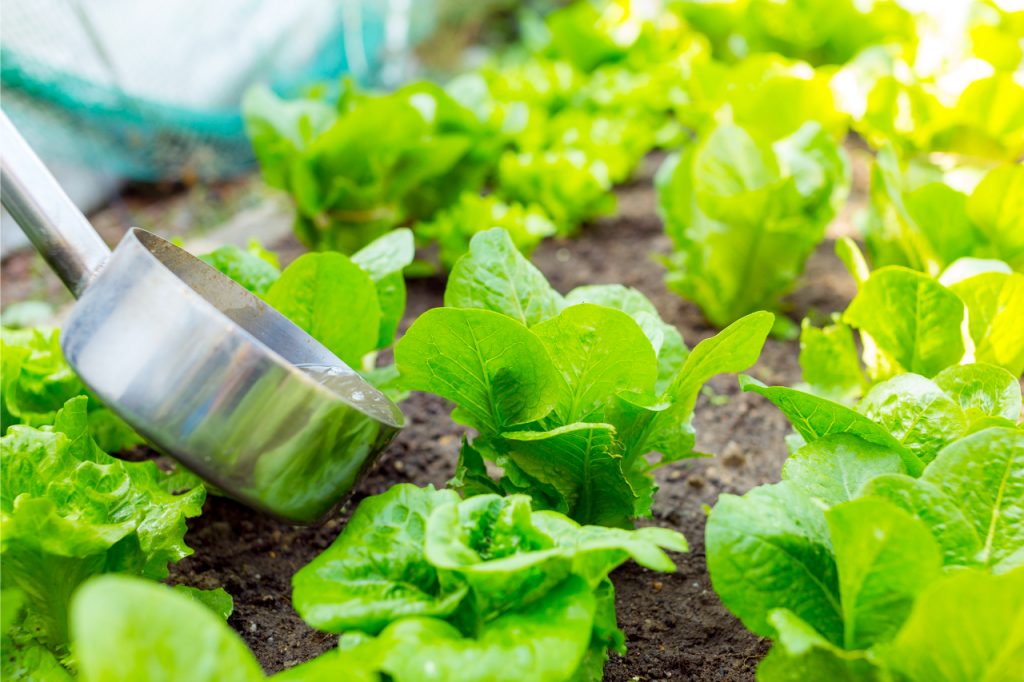
How Does Tea Help Plants?
Numerous home gardeners use tea as a fertilizer. But, what precisely is it about tea grounds that benefits plants so much? You can replace commercial fertilizer with tea because of the following ingredients:
- Tannins: These polyphenol compounds improve soil fertility, particularly when tea grounds are applied directly to the soil.
- Nitrogen: Tea includes vital nutrients like phosphorus and potassium, which plants utilize for development and fruit production.
- Minerals: Tea carries nitrogen, a necessary ingredient for producing new leaves. Nitrogen also helps in plant growth. A lack of nitrogen may cause yellowing and stunted development.
Tea grounds can surely pack a nutritional punch. It may serve as a vitamin supplement for your crops and your flowers. Now, let’s talk about how these components work when applied.
The Benefits Of Tea Grounds For Plants
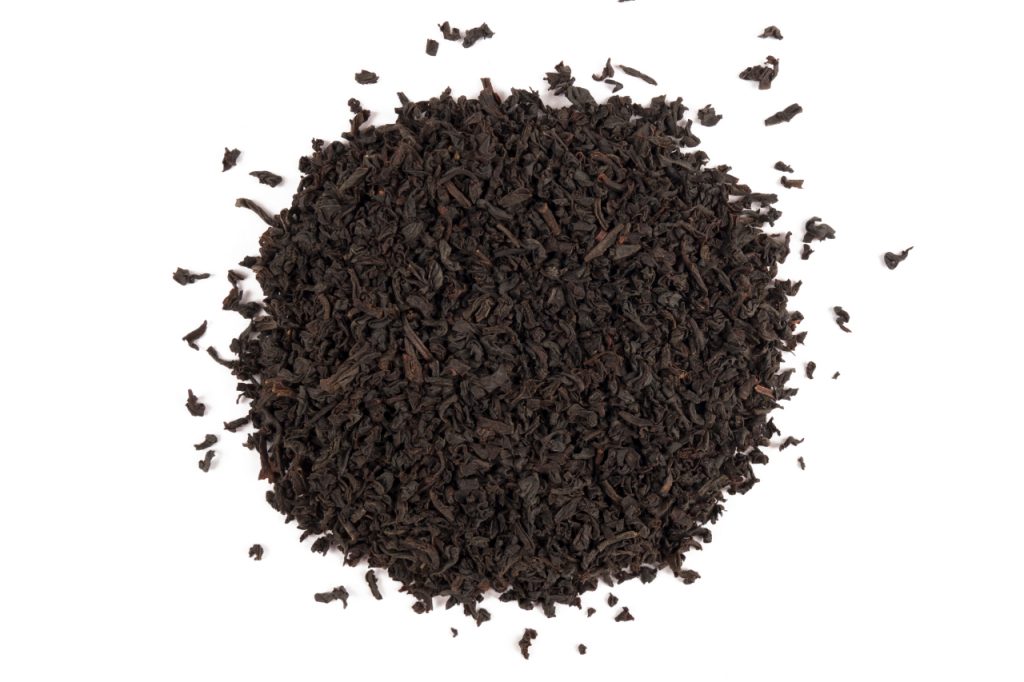
When tea leaves break down, they release tannins and other vital nutrients into the soil. In turn, it offers the following benefits:
Boosts The Soils Acidity Levels
Tea leaves contain tannic acid, raising soil acidity and lowering its pH. These components are ideal for plants that thrive in acidic environments.
Pest-Prevention
Your plants will benefit from a few tea leaves strewn about them, which may discourage pests. Tea is repulsive to many animals, including rodents, cats, and various bugs. You may also spray brewed tea onto your plants, pour it into the soil, or even place it on the surface, ( be sure to test on a small leaf out of site first).
Weed Prevention
Many home gardeners say that weeds are less an issue with a tea mulch.
Fungus Prevention and Control
You can inhibit mold growth by spraying the leaves with brewed tea. Teas may protect your plants from a variety of diseases and fungi.
Enriching The Soil With Essential Nutrients
Many plants benefit from the tannins and nitrogen naturally found in tea. The properties of dried ground turn into goodness as they decompose. Tea leaves may also help your plants develop and stay healthy by being incorporated into the soil.
Are Tea Grounds Beneficial To All Plants?
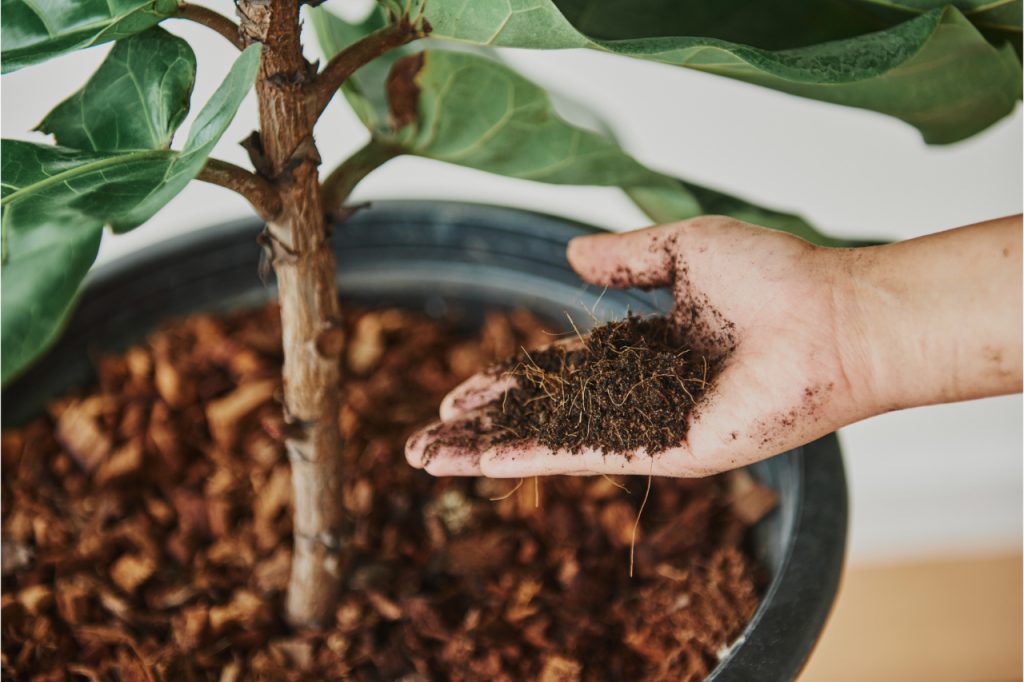
Some plants, however, just do not thrive in the presence of tea leaves. While most plants will benefit immensely from adding tea to their soil, some don’t.
Moreover, even if some plants benefit from tea, there is a chance that you might overfeed them. Doing this will result in affected PH levels. So, make sure you know what you’re doing before using tea grounds on your plants.
Many frequently grown garden plants benefit from being fertilized with leftover or discarded tea grounds. Here are a handful of the most well-known species:
- Roses: Despite their widespread popularity, roses are notoriously tricky to grow. Tea is a terrific companion for keeping them healthy.
- Spider Plants: Though spider plants are resilient enough to survive without fertilizer, a tea treatment may stimulate their development.
- African Violets: Despite their popularity, they are notoriously difficult to care for. However, providing the plant with enough light and an acidic fertilizer dose might help in their fruit and flower production.
- Blue Hydrangeas: People recognize this acid-loving marsh plant for its large flowers in various hues ranging from pink to vivid blue. You can enhance the vibrance of blue hydrangeas by using an acidic fertilizer or tea.
- Ferns: Acid-loving ferns might benefit from tea leaves. Teas can help preserve their color and vigor throughout the season.
The most significant rule of thumb is researching the pH and fertilizer requirements for each species you cultivate. Since it’s so diluted, tea has little impact on plants sensitive to acidic solutions, such as citrus.
How to Use Tea Grounds On Plants
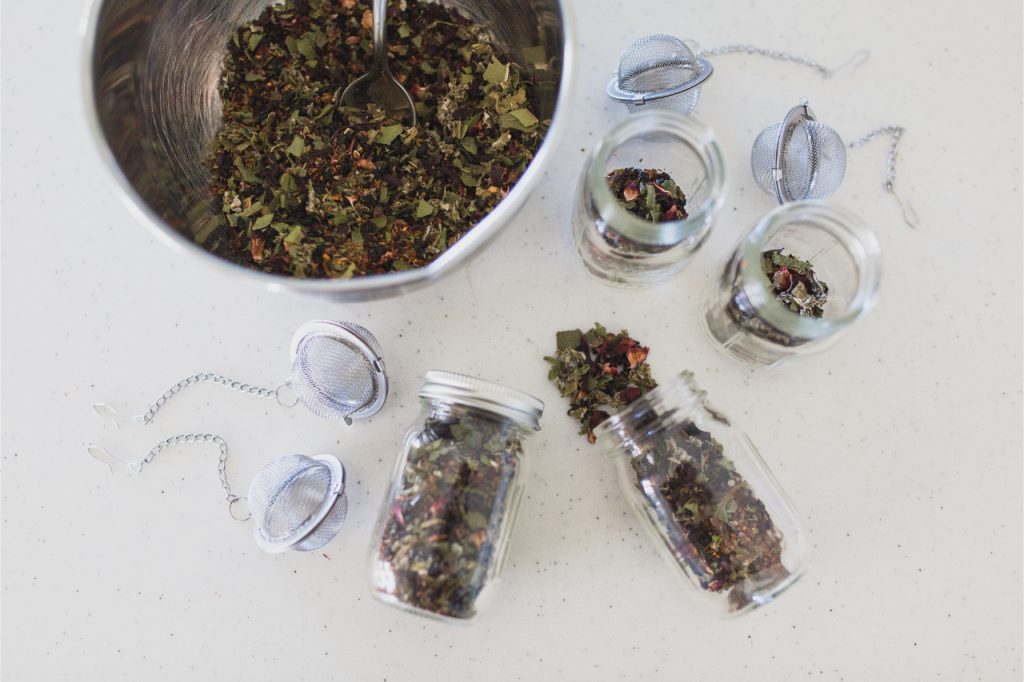
There are two primary methods to apply ground tea to houseplants and garden plants: a liquid (left-over steeped tea) or placing tea bags in the soil. Plants may benefit from the use of tea that you leave after brewing. Before using tea in the garden, make sure it has cooled down completely.
Here are some different and creative ways you can apply tea grounds to your plants..
Tea Mulch
You can spread the dried tea leaves over the surface of your plant’s soil as a mulch — protecting the topsoil from weeds. The use of tea leaves or any other mulch will help retain moisture, control soil temperature, and prevent the sun from drying up the soil.
You can also use it to get rid of weeds but applying tea to your top layer of soil.
Composting
Did you know that you can make your very own compost with tea? When composting, use tea leaves alone. Discard the tea bags. In certain cases, tea bags are made of plastic. This material will not dissolve in your compost container. So make sure to always check the material of your tea bags before putting them in your garden or potted plant.
Composting tea is a simple process. You may easily add the tea grounds to your kitchen compost by just putting them in. They contain a lot of nitrogen, which aids in the breakdown of other compostable materials.
Add this to your flower bed or herb garden, and you’re done!
Watering Plants
Your plants can also sip on tea like you do! Using tea to water your plants is equivalent in terms of quantities and frequency. However, do not supply a plant with more tea in addition to the normal quantity of water.
If you take a cup of brewed tea and use it to water your plants that day, be conscious of how much water it has previously gotten. Moreover, never provide hot tea to plants. The excessive warmth will shock the plants, causing permanent harm.
Brew tea using one or two organic tea bags. Then, allow it to rest for many hours or overnight. Once it has cooled to room temperature, evenly distribute the tea over the plants.
Tea Bags Containing Plastic: Use Caution
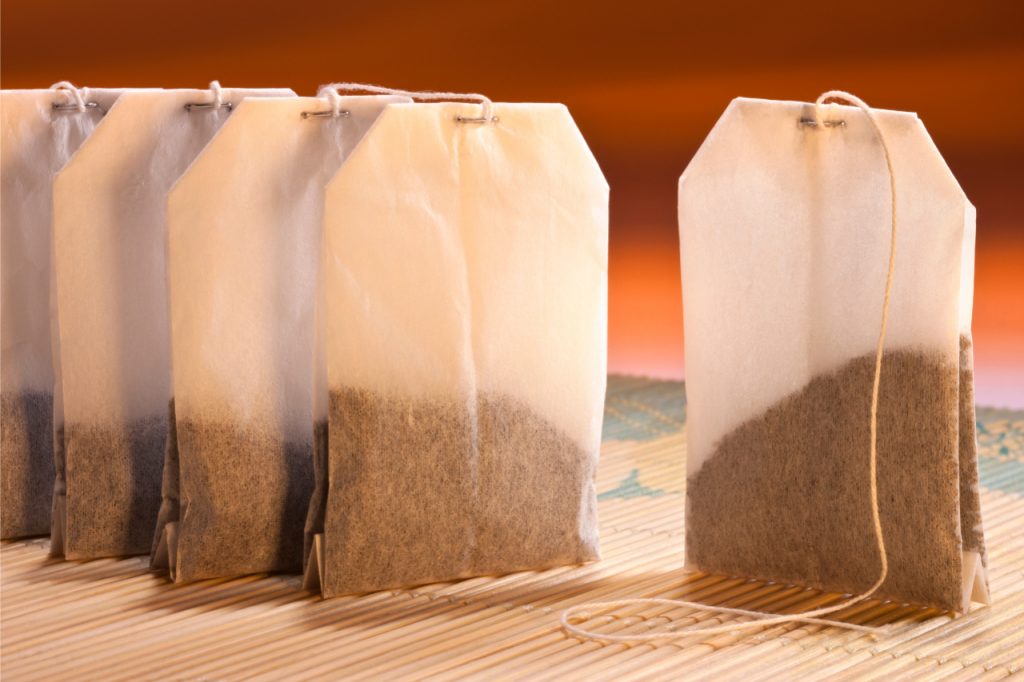
Think about the plastic content if you’re planning to use tea bags on your plants.
Almost all available commercial tea bags have plastic in them.
PET is the most often used plastic that is safe around food. This Polyethylene material is non-biodegradable. As a result, do not put tea bags directly on plants outside; doing so constitutes pollution.
Also, plastic may still be present in the tea without a bag. Microplastic will fall out the tea bag and rest on the actual tea leaves due to friction in the brewing process.
So, if you want to use tea bags for your plants, make sure that its organic and free from toxins.
What Kind Of Tea Should You Use For Plants?
Tea comes in a wide variety of flavors, strengths, and additives. It can also include a variety of chemicals sourced from various locations across the globe. But they are pretty much all the same. You can use any kind of tea for your plants, but again test it on a small nonvisible leaf or with a small plant first.
Tea Grounds vs. Store-Bought Fertilizer
Many studies and gardeners have shown the beneficial outcomes of tea compared to other fertilizers. But, the question is, can you use it as a substitute altogether?
It’s worth experimenting with tea in the garden if you’re a fan of the natural benefits, long-term viability, and simplicity of use. Tea’s qualities are pretty similar to fertilizers, and those who are already tea connoisseurs may save money by using tea as a fertilizer.
Keep track of how your plants respond to the fertilizer and the tea. Personal preference, or the growth and health of your plants, may have a role in whether or not you persist with it.
The Verdict: Are Tea Grounds Good For Plants?
So, think again before you throw out those tea grounds. Your plants can have a sip, too.
Tea grounds work nicely with almost all indoor and outdoor plants. But, always remember to monitor the PH levels of your soil and the quality of your tea.
Overall, tea may be a valuable and easy method for nourishing indoor plants!
